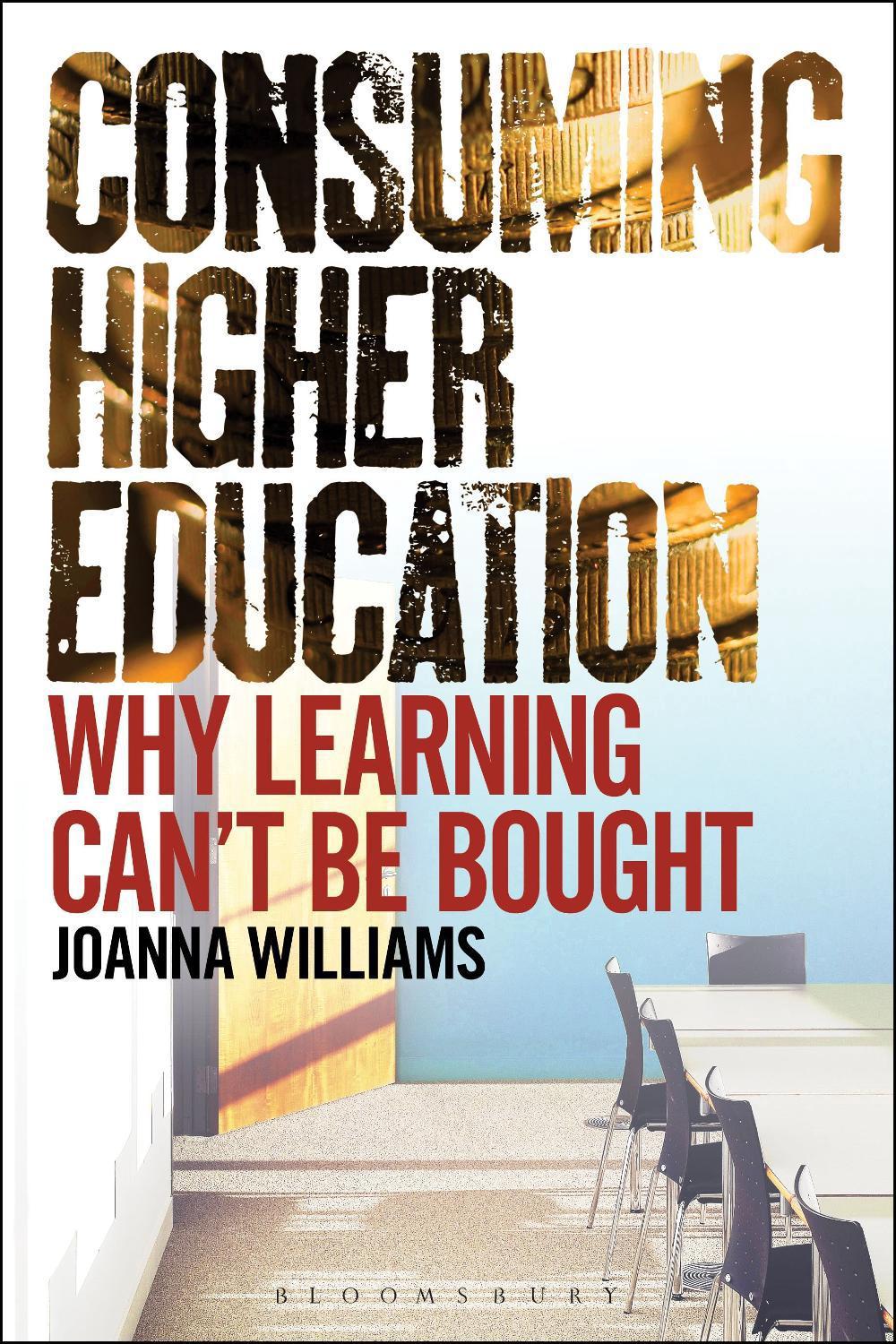
When you click on links to various merchants on this site and make a purchase, this can result in this site earning a commission. Affiliate programs and affiliations include, but are not limited to, the eBay Partner Network.
Consuming Higher Education: Why Learning Can't be Bought by Dr Joanna Williams (

- Item No : 388544482634
- Condition : Brand New
- Brand : No brand Info
- Seller : the_nile_uk_store
- Current Bid : US $69.20
-
* Item Description
-
The Nile on eBay

Consuming Higher Education
by Dr Joanna Williams
Reflects on the link between constructing students as consumers and the purpose of higher education, and the implications for student identity and learning.
FORMAT
PaperbackLANGUAGE
EnglishCONDITION
Brand New
Publisher Description
Consuming Higher Education explores the status of students within the university and society, and the funding and purpose of higher education, drawing on empirical data, UK and USA government policy documents, speeches by policy makers and media representations of students. Joanna Williams moves beyond the debates surrounding fees to consider the impact of the consumption model on universities, learning, knowledge, and student identity. While consumer status initially appears to empower students, Williams argues that it ultimately erodes students' autonomy and reduces learning to an instrumental focus on credit accumulation. At the same time, in giving students consumer status, lecturers are encouraged to avoid intellectually or emotionally challenging content so as not to upset student consumers, which could promote dissatisfaction. Williams draws these themes and arguments together to consider what it means to be a student and to explore alternative conceptions of higher education.
Table of Contents
Acknowledgements \ Foreword Arthur L. Wilson \ Introduction: It's Not About the Money \ Part I: The Construction of the Student as Consumer \ 1. Students Within a Changing University \ 2. The Rise of the Student Consumer \ 3. Constructing Consumption \ Part II: Being a Consumer \ 4. Teaching Consumption and Consuming Learning \ 5. A Question of Identity \ 6. Customer Care \ 7. Beyond Entitlement \ Bibliography \ Index
Review
If you have been discouraged by what you think may well be undesirable trends in higher education, I urge you to read this book - and to consider the questions Joanna Williams raises. * From the Foreword by Arthur L. Wilson, Associate Professor of Adult Education, Department of Education, Cornell University. USA *
Consuming Higher Education is a very important contribution to thinking about the shape of higher education today. It grapples head-on with the pervasive trope of 'student-as-consumer', illuminating the complex socio-historical and cultural influences that have come to shape contemporary university students as consumers. Yet, the book is by no means all gloom. Joanna Williams argues lucidly, persuasively and inspiringly for putting 'intellectual struggle' at the heart of university education. * Monica McLean, Professor of Education, University of Nottingham, UK *
Consuming Higher Education is a timely and comprehensive treatment of a phenomenon that is of growing importance as governments everywhere embark on market-based reforms. It should be read and reflected on by everyone with an interest in the future health of our higher education system. * Roger Brown, Professor of Higher Education Policy, Liverpool Hope University, UK *Promotional
Reflects on the link between constructing students as consumers and the purpose of higher education, and the implications for student identity and learning.
Long Description
Consuming Higher Education explores the status of students within the university and society, and the funding and purpose of higher education, drawing on empirical data, UK and USA government policy documents, speeches by policy makers and media representations of students. Joanna Williams moves beyond the debates surrounding fees to consider the impact of the consumption model on universities, learning, knowledge, and student identity. While consumer status initially appears to empower students, Williams argues that it ultimately erodes students' autonomy and reduces learning to an instrumental focus on credit accumulation. At the same time, in giving students consumer status, lecturers are encouraged to avoid intellectually or emotionally challenging content so as not to upset student consumers, which could promote dissatisfaction. Williams draws these themes and arguments together to consider what it means to be a student and to explore alternative conceptions of higher education.
Review Quote
If you have been discouraged by what you think may well be undesirable trends in higher education, I urge you to read this book - and to consider the questions Joanna Williams raises.
Promotional "Headline"
Reflects on the link between constructing students as consumers and the purpose of higher education, and the implications for student identity and learning.
Feature
Draws together empirical data and policy, with a critique of media representation of higher education.
Details
ISBN1441183604Year 2012ISBN-10 1441183604ISBN-13 9781441183606Media BookShort Title CONSUMING HIGHER EDUCATIONPages 208Language EnglishSubtitle Why Learning Can't be BoughtDOI CBID168020Place of Publication New YorkCountry of Publication United StatesIllustrations black & white illustrationsFormat PaperbackImprint Bloomsbury Academic USAUK Release Date 2012-11-22Translated from EnglishNZ Release Date 2012-11-22US Release Date 2012-11-22Author Dr Joanna WilliamsPublisher Bloomsbury Publishing PlcPublication Date 2012-11-22DEWEY 378.10094Audience Postgraduate, Research & ScholarlyAU Release Date 2012-11-21


















